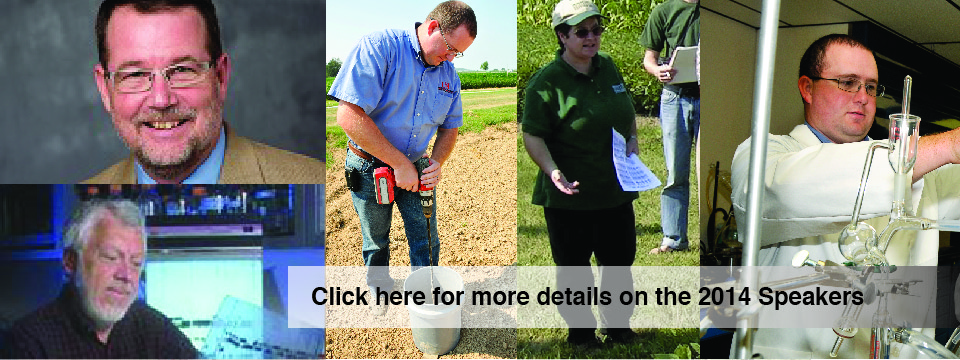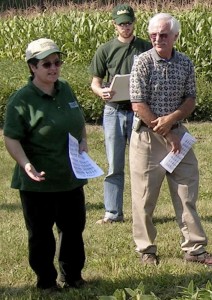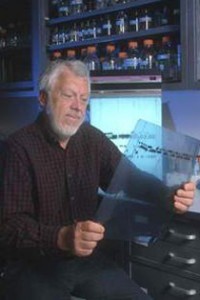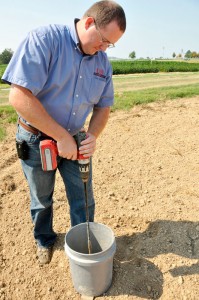Enhancing Cropping System Performance Under Increased Environmental Variability
February 13, 2014
8:30 AM - 5:00 PM
University of Minnesota - St. Paul Student Center 2017 Buford Avenue, Falcon Heights, MN
Afternoon Poster Session Registration Available in Symposium Registration
2014 Speakers
Jeffrey J Volenec
Professor of Agronomy
Education: M.Sc., University of Missouri-Columbia Ph.D., University of Missouri-Columbia
Research Areas: The mission of our research is to identify and characterize physiological and biochemical mechanisms influencing growth and stress tolerance of plant species used for livestock feed and biofuel
Current research topics include:
- Characterization of mechanisms controlling synthesis and degradation of organic reserves (starches, sugars, and storage proteins) in storage organs, and understand the role of organic reserves in plant growth and stress tolerance.
- Conduct comparative analysis of water and nitrogen use by candidate biofuels species. These analyses aim to identify those species and cropping systems that maximize production of cellulose, hemicellulose, and nonstructural carbohydrates while minimizing environmental impacts.
- Determine the physiological and molecular mechanisms controlling fall dormancy, and how these impact winter hardiness and growth of alfalfa.
- Understand how potassium and phosphate nutrition impact forage growth and persistence, and the underlying physiological and biochemical processes that mediate agronomic performance. This is part of a large collaborative effort on potassium nutrition research at Purdue University. Details of this effort can be found at the K-Team website.
Sieglinde Snapp
Education: Ph.D. University of California, Davis, 1991
Research Interests: My research focuses on understanding the principles of resilient cropping system design and biologically-based soil management. This includes investigating the multi-functional role of accessory crops such as cover crops in mediating nutrient efficiency, soil function and healthy crop roots. A particular area of interest is the feedback loops in nitrogen and phosphorus availability mediated by plants and associated microbes. Predicting nutrient availability and tradeoffs between mineralization and assimilation processes are important questions my research group and collaborators address in organic and sustainable production systems. To foster outreach and education on soil ecological management I coordinate a website at MSU on applied soil ecology http://www.safs.msu.edu/soilecology/index.htm.
I am committed to participatory research and extension approaches with iterative feedback from stakeholders. To this end, I developed the mother and baby trial design to link long-term research trials systematically with on-farm experimentation. Collaborations across social and biological scientists are essential in a rapidly changing world, and I work closely with multidisciplinary teams including scientists, farmers, students, advisors and extension educators to foster farmer innovation and build more sustainable, environmentally-friendly cropping systems. The participatory research methods and on-farm research trial designs I work on have been adopted by agronomists and plant breeders in 16 countries in Africa, Southeast Asia and in Paraguay.
Teaching interests include developing a new course with Dr. Phil Robertson addressing Soil Biology CSS 360 and contributing cropping systems and participatory research methodology lectures in CSS and courses such as ANP859, a core requirement of the new Gender, Justice and Environment Graduate specialization. As a core faculty member of African Studies and the Women in International Development program I am committed to education and scholarship in area studies and international development, including promoting south-south linkages and extending the agro-ecology lessons of the field crop LTER to Southern Africa and West Africa.
James E. Specht
Francis and Dorothy Haskins & Charles E Bessey Professor of Agronomy & Horticulture
Education:
- M.S., Agronomy, University of Illinois, 1971
- Ph.D., Genetics, University of Nebraska, 1974
Research Areas: Soybean Genomics and Water Stress Physiology
Research Interests: Plant genetics and plant physiology have been my long-term research interests. I am a member of a national research team that developed the first soybean genetic map of 20 linkage groups (Cregan et al., 1999). That genetic map has now been upgraded to 1845 markers plus 150 classical markers (Song et al., 2004). We are currently working on using SNP markers to create a soybean transcript map. Molecular markers in the soybean map provide the means for identifying genomic segments - more commonly known as quantitative trait loci (QTLs) - that govern soybean traits such as yield or seed protein, and then allow breeders to introgress the favorable alleles at these loci into new varieties via marker-assisted selection. Indeed, my lab group recently used the soybean molecular marker map to identify, map, manipulate a QTL allele that increases soybean seed protein content by a substantive two percentage points (Chung et al., 2003). In more recent work, we used a selective genotyping technique to show that this allele for high protein is present in 37 or the 41 highest protein accessions in the soybean germplasm collection. Another of my primary research goals has been to make genetic improvement in soybean yield per se more rapid and effective via the introduction and use of modern genomic and molecular marker technologies to identify yield-determining traits. My lab was able to show that soybean yield response to water abundance and scarcity was linear. Moreover, we showed that the QTLs governing the response slope (i.e., water-use-efficiency, or WUE) were not different from those QTLs governing mean soybean yield per se at any level of water abundance or scarcity (Specht et al., 2001). I and my collaborators have recently embarked on research aimed at exploring the possibility of "mining" favorable alleles at yield QTLs from the wild relative of soybean (Glycine soja) for use in the cultivated soybean (Glycine max). However, we have also recently identified statistically significant (positive) transgressive segregants (TS) for yield in an elite x elite mating involving high-yielding northern x southern USA cultivars. Using molecular markers we plan to identify the parental, grandparental, and ancestral origin of the yield-enhancing QTL alleles that are responsible for this TS. This research is expected to provide significant insight on how breeders are able to continue to mine favorable genes from elite x elite matings.
Trent Roberts
Research Assistant Professor of Soil Fertility/Soil Testing
Education:
- Ph.D., University of Arkansas, 2010, Soil Fertility and Plant Nutrition
- M.S., University of Arizona, 2006, Soil and Water Science
Research Area: Soil Fertility and Plant Nutrition Development of New Soil Test Methods
Research Emphasis: Investigation of soil-based nitrogen tests for fertilizer management in crop production, with specialization in rice, wheat, and corn. Development of analytical methods for soil and plant analysis, including fractionation of soil organic nitrogen with an emphasis on identifying potentially mineralizable nitrogen. Modeling crop response to nitrogen fertilizer application to determine economic optimum nitrogen rates for crop production. Development of better management strategies for crop production through the investigation of the nitrogen balance (i.e., nitrogen utilization, nitrogen transformations, nitrogen losses and mechanisms, and nitrogen mineralization from soil and plant residues). Use of stable isotopes as tracers in terrestrial systems.
Funding for the 2014 Symposium provided by:





